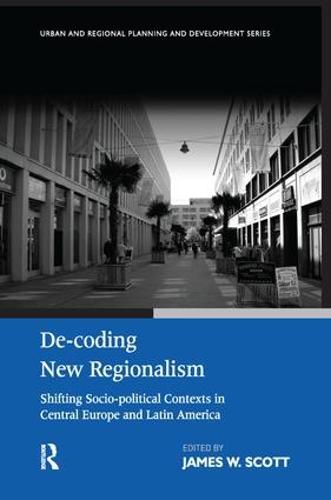Readings Newsletter
Become a Readings Member to make your shopping experience even easier.
Sign in or sign up for free!
You’re not far away from qualifying for FREE standard shipping within Australia
You’ve qualified for FREE standard shipping within Australia
The cart is loading…






Bringing together comparative case studies from Central Europe and South America, this book focuses on ‘new’ regions - regions created as political projects of modernization and ‘re-scaling’. Through this approach it de-codes ‘New Regionalism’ in terms of its contributions to institutional change, while acknowledging its contested nature and contradictions. It questions whether these regions are merely a strategy of neo-liberal adjustment to changing political and economic conditions, or whether they are indicative of true reform, greater citizen participation and empowerment. It assesses whether these regions are really representing something new or whether they are a reconfiguration of traditional power relationships. It provides a timely critical analysis of ‘region-building’ and the extent to which national processes of decentralization and sub-national processes of regionalism can enhance the effectiveness and responsiveness of governance.
$9.00 standard shipping within Australia
FREE standard shipping within Australia for orders over $100.00
Express & International shipping calculated at checkout
Bringing together comparative case studies from Central Europe and South America, this book focuses on ‘new’ regions - regions created as political projects of modernization and ‘re-scaling’. Through this approach it de-codes ‘New Regionalism’ in terms of its contributions to institutional change, while acknowledging its contested nature and contradictions. It questions whether these regions are merely a strategy of neo-liberal adjustment to changing political and economic conditions, or whether they are indicative of true reform, greater citizen participation and empowerment. It assesses whether these regions are really representing something new or whether they are a reconfiguration of traditional power relationships. It provides a timely critical analysis of ‘region-building’ and the extent to which national processes of decentralization and sub-national processes of regionalism can enhance the effectiveness and responsiveness of governance.